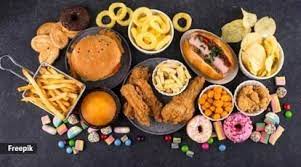Trans Fat Labels Lead to Healthier Fast Foods
By wchung | 04 Feb, 2026
Holy fish sticks! Scientists finally have some good news about fat in our foods.
Contrary to fears, most food manufacturers and restaurants did not just swap one bad ingredient for another when they trimmed artery-clogging trans fats from products and menus, an analysis finds.
Even the french fry, a longtime dietary scourge, got a healthier remake. But there’s still room for improvement, particularly for some items sold in supermarkets, which replaced heart-damaging trans fat with its unhealthy cousin, saturated fat.
A Harvard researcher and a consumer advocacy group examined 83 foods that had a makeover since 2006. That year the federal government began requiring food labels to list the amount of trans fat in packaged products and New York City became the first of several cities to phase them out in restaurants.
Trans fats are created when hydrogen is added to liquid oils to harden them for baking or to extend shelf life. With trans fat under attack, food makers and restaurants tinkered with various cooking oil and fat substitutes, trying not to compromise taste and texture. But how healthy are the reincarnations?
Harvard researcher Dr. Dariush Mozaffarian and the Center for Science in the Public Interest checked grocery products and restaurant chow for fat content. Items studied included margarine, junk food, baked goods and fast food from five popular chains.
The researchers did not do their own chemical testing, but instead used Food and Drug Administration databases, nutrition labels and industry brochures to determine trans fat and saturated fat levels.
Results were published in a letter in Thursday’s New England Journal of Medicine.
Nearly all of the foods analyzed were free or mostly free of trans fat. And many companies and restaurants did not spike their saturated fat content when they cut trans fat — 65 percent of supermarket products and 90 percent of restaurant fare contained saturated fat levels that were lower, unchanged or only slightly higher than before.
“Companies almost always can reformulate their food to have a healthier balance of fats,” said CSPI executive director Michael Jacobson.
The researchers declined to provide details about the winners and sinners because they said they plan to publish the full results later. But they gave three examples:
— Large order of McDonald’s french fries: Trans fat dropped from 7 1/4 grams to zero; saturated fat went from 5½ grams to 3½ grams.
— Gorton’s Crunchy Golden Fish Sticks: 3 grams of trans fat per serving to zero; saturated fat unchanged at 4 grams. The package lists six sticks per serving.
— An Entenmann’s Rich Frosted Donut: 5 grams of trans fat to zero; saturated fat more than doubled from 5 grams to 13 grams.
Just because trans fat is gone from gluttonous foods doesn’t mean they’re healthy, said Dr. David Heber, who heads the UCLA Center for Human Nutrition.
“Trans fat or not, a doughnut is still a doughnut. Even Homer Simpson will back me up on that,” said Heber, who had no connection with the research.
The American Heart Association recommends that people limit trans fats to less than 2 grams per day and less than 16 grams of saturated fat, based on a 2,000 calorie diet.
The report was funded by two foundations. CSPI, which made headlines as the “food police” targeting movie theater popcorn and fettuccine Alfredo, has pushed for government restrictions on trans fat.
ALICIA CHANG, AP Science Writer LOS ANGELES

Asian American Success Stories
- The 130 Most Inspiring Asian Americans of All Time
- 12 Most Brilliant Asian Americans
- Greatest Asian American War Heroes
- Asian American Digital Pioneers
- New Asian American Imagemakers
- Asian American Innovators
- The 20 Most Inspiring Asian Sports Stars
- 5 Most Daring Asian Americans
- Surprising Superstars
- TV’s Hottest Asians
- 100 Greatest Asian American Entrepreneurs
- Asian American Wonder Women
- Greatest Asian American Rags-to-Riches Stories
- Notable Asian American Professionals

